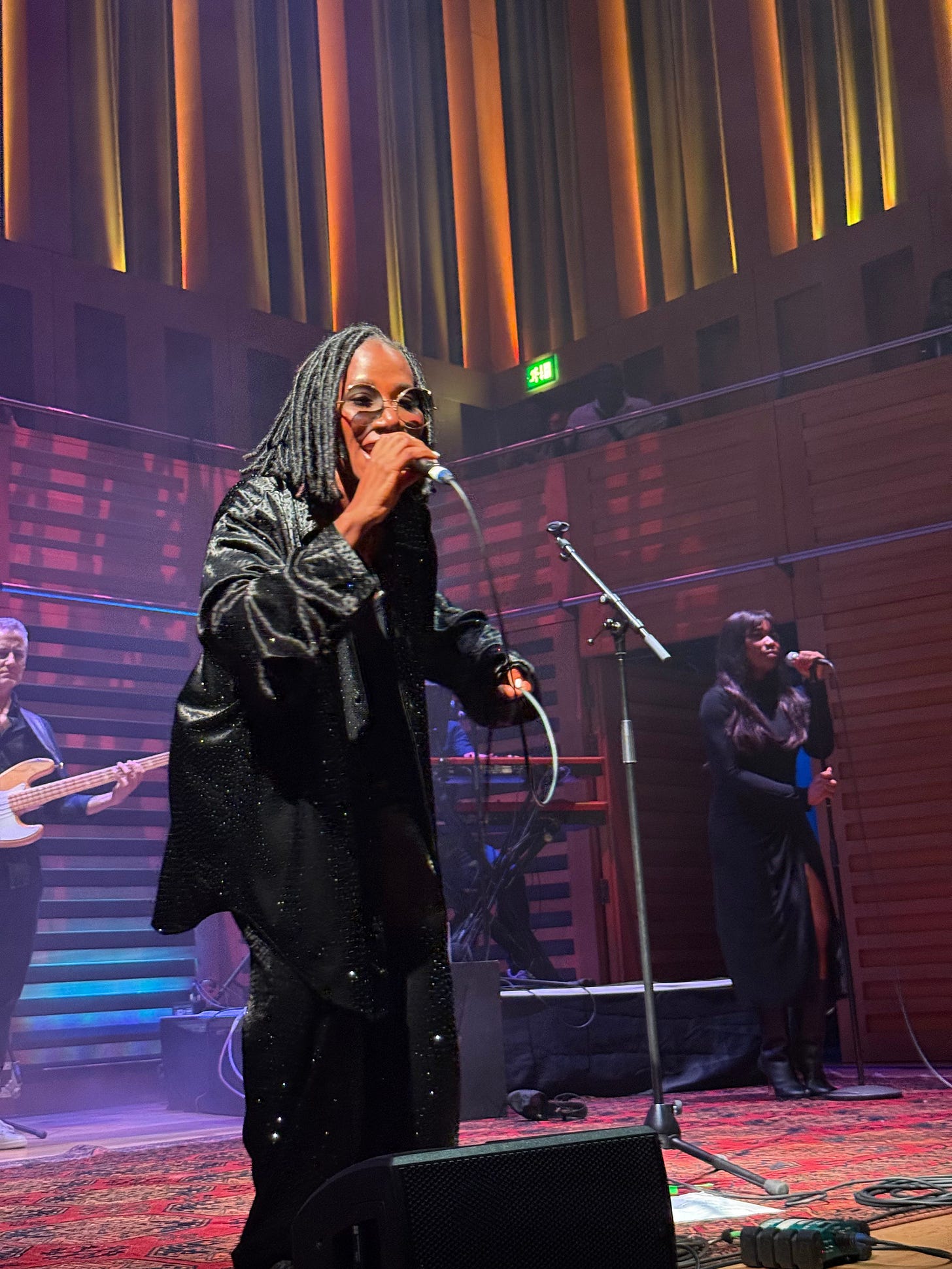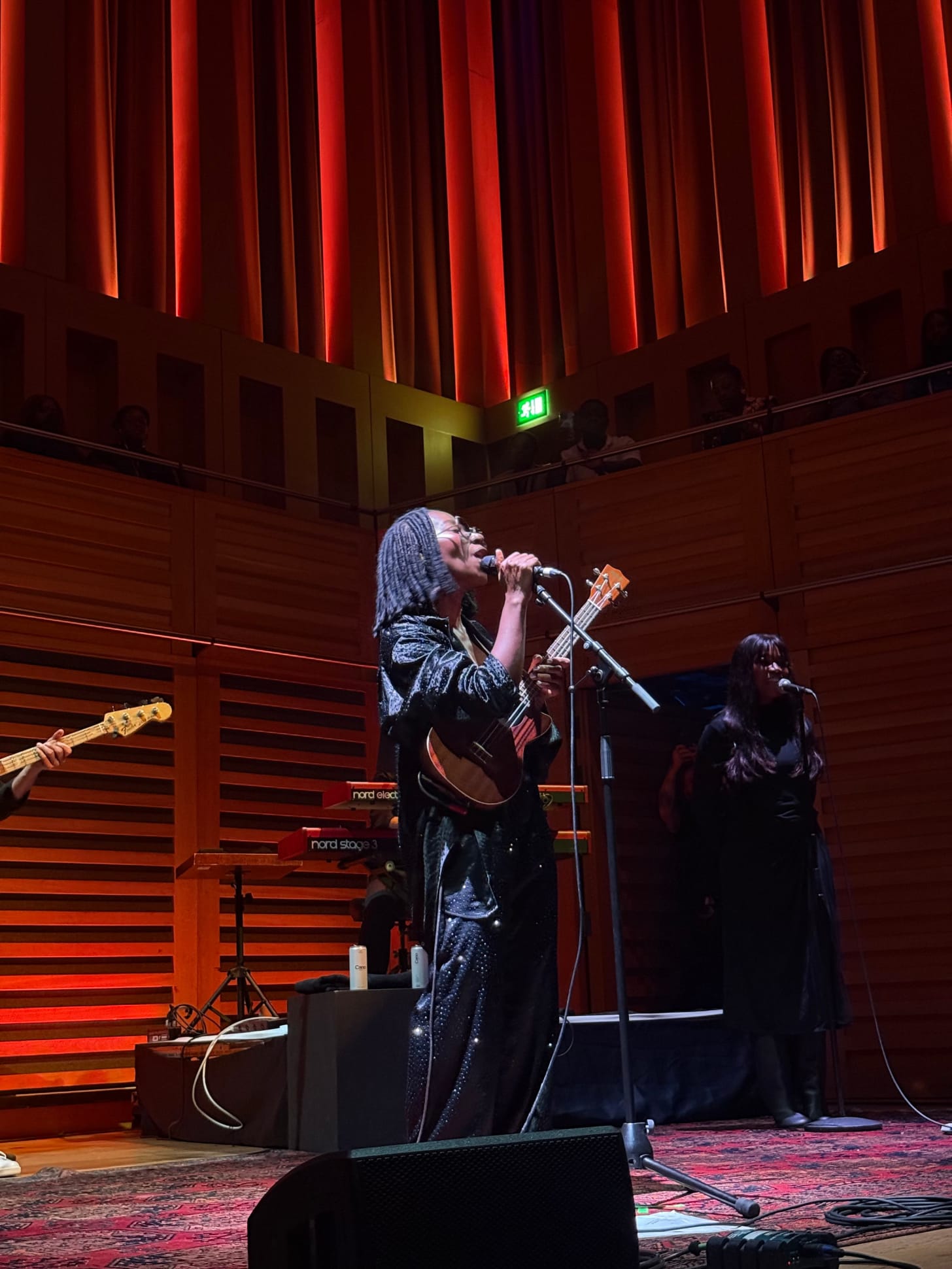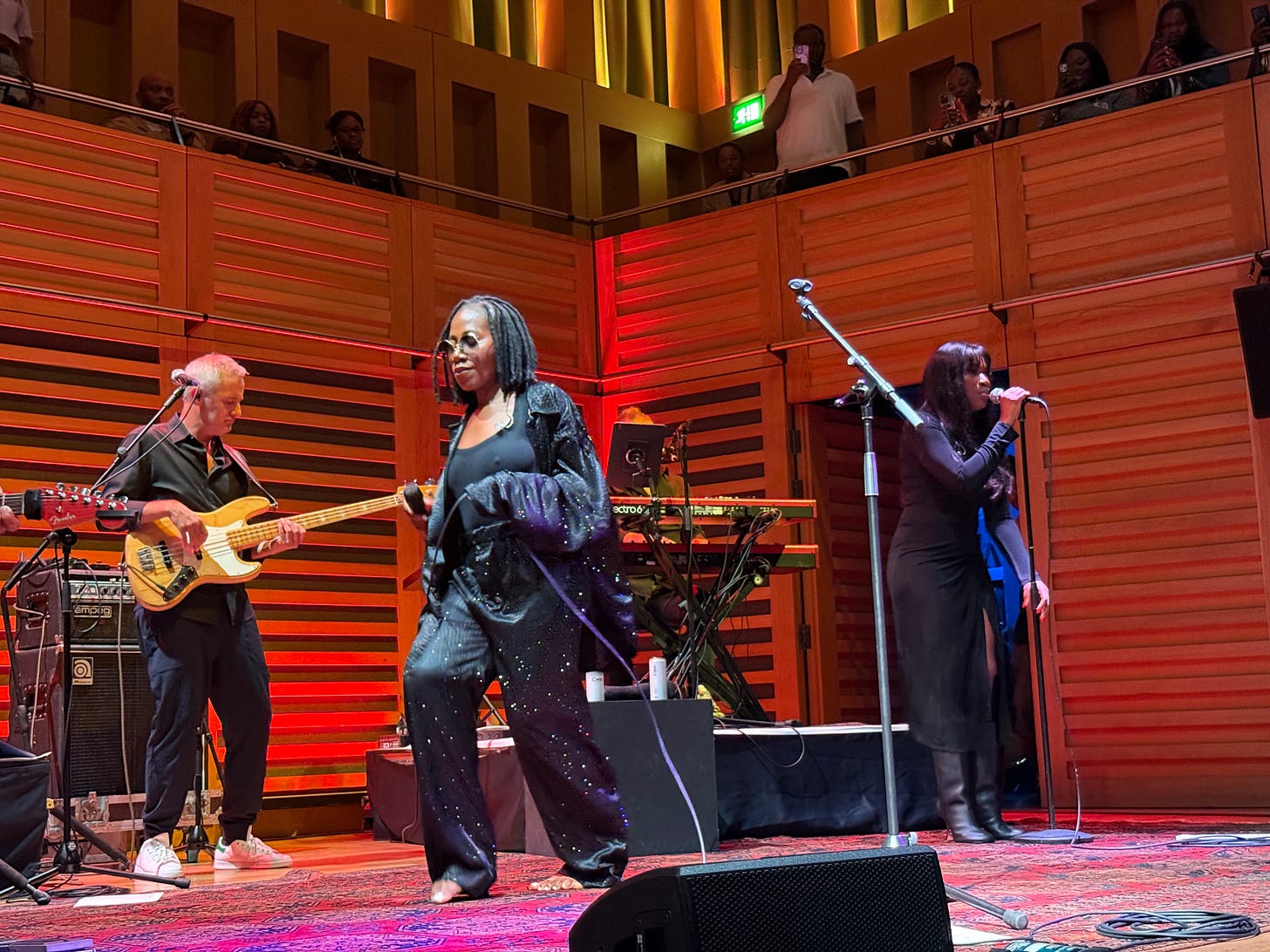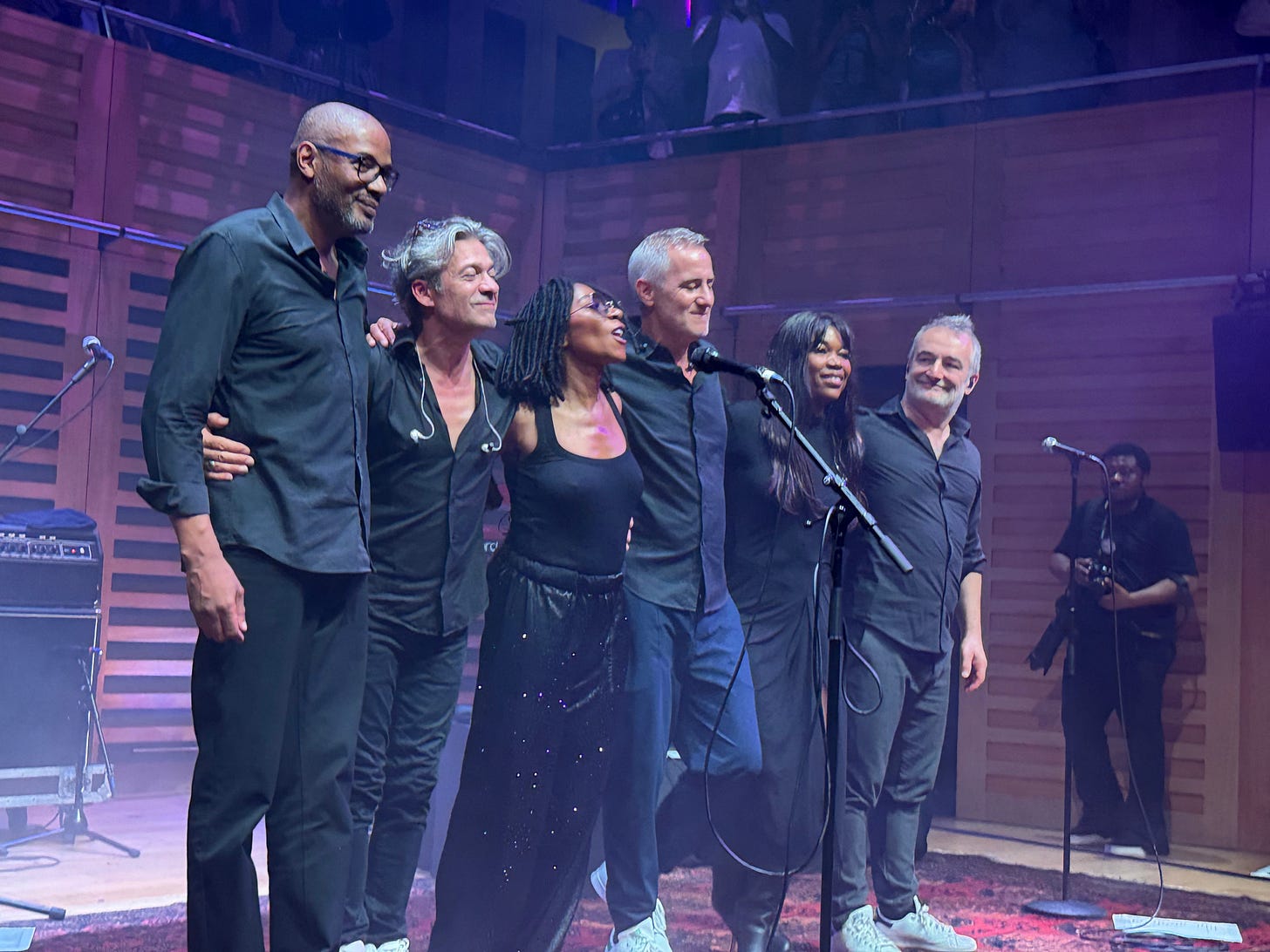Troy called me as the train formerly known as the Overground approached Euston. He was just arriving at the venue, Kings Place. We were 15 minutes behind him. Troy is always punctual, business-like and a proper Aṣa Stan. When he asked me earlier that week about weekend plans, I told him I was seeing Aṣa for the third time in three years. This is the only occupational hazard of being married to an Aṣa fan.
We were not fashionably late. We were asked to wait at the door. Aṣa was already on stage. The booming sound of her band’s cooking hits hard. Aṣa is singing Odo. Seun is unrepentant; she is yet to warm up to the song, Odo. We first heard it when she premiered it at the Royal Albert Hall two years ago. Aṣa has not released new material since Odo.
We hurried into our front seats. We could almost touch Aṣa. She is small in person, feisty in performance. The stage was her playground. We were so close to the band that we could see their A4 paper setlist on the floor. Aṣa introduced her band members, one after the other. Then she belted out three songs from her older albums. Then she told us that she had re-recorded her first three albums. She wants to own her masters because she would not answer to decision makers who can not hold a note! I was glad to hear about this Swiftian decision. This improves my chances of purchasing her first album on vinyl for wifey.
It was a delicious set. Aṣa stumbles when she sings ‘Jailer’, traipsing straight into the second verse. Her longtime friend, one-time manager and back-up vocalist, Janet, could not hide her surprise. Aṣa, the master performer, corrects it so quickly that the most eager fan in the room, the guy behind us who kept saying the lyrics before Aṣa sang them (like a village chorister dictating hymns from the altar), missed it.
The village chorister was grating Seun’s nerves. I shot him a look, but the ecstasy of Aṣa’s music had consumed him. A part of me felt he was performing for his date. I am not sure she was impressed. I saw Seun stifle a tear-jerker at some point. I know what Aṣa means to her. Her music is the fodder of her best-kept memories. A playlist of her constant grief. Aṣa’s music holds a kind of meaning that says things that you would rather have said on your behalf. Perhaps this is why Seun sees Aṣa every time she can. It was a kind of gratitude that this ungraceful local man was tampering with.
The music journalist in me made his cameo when Aṣa sings ‘Bimpe’, that humorous song that is about almost in-law politics. Almost, because Bimpe, the provider of unsolicited advice, is given a free pass because song persona was dating her older brother. It is a passive-aggressive song about the grace we afford those close to the people we love.
Several Yoruba songs explore this tendency. They are all successful because they reproduce that tension, that unresolved conflict masquerading as grace. Take Victor Olaiya’s ‘Iye Jemila’. Unadorned storytelling done entirely in the Ijebu dialect, it stands on the wisdom of delayed retribution. Crosdale Juba’s ‘Anamokonren’, rendered in Ikale dialect, stands on the same wisdom. Adewale Ayuba’s more recent song ‘Koloba Koloba’ is more frontal in its dealings with disgruntled in-laws, but dare not cross the Rubicon of Yoruba decency!
When Aṣa sings ‘Bamidele’, the audience sings along, drowning the village chorister’s voice. Akinyele o! Akinyele o! Akinyele o!
Lawyer Akinyele Jinadu appears on Aṣa's version of Agidigbo FM’s Kokoro Alate. His complainant is his longtime lover. Her request is to have a proper Yoruba wedding since she is not ‘omo registry’. Aṣa did not play ‘Awe’, the first in her series of this kind of portrait songs, where she tells a Faulknerian short story. Awe is Yoruba for mate. The eponymous ‘Awe’ is an Egbon Adugbo (Wahidi) accused of impregnating a woman old enough to be his mother. The song does not spotlight the shame in his action; the shame need not be embellished. Instead, the story is told matter-of-factly, simply as a graphic depiction of Lagos.
The show’s climax was when she performed the upbeat ‘Be My Man’. Everyone in the room was on their feet, snapping their fingers and doing a wiggle, including Troy. Osagz of the Loose Talk podcast once argued that the Beautiful Imperfection album was Aṣa’s magnum opus. Listening to a good number of those songs rendered live, I am inclined to agree with the man.








All I see here, beyond the trademark beautiful prose, is Dami, the romantic. Asas's debut album remains my favourite.
This was beautiful written. I enjoyed it.